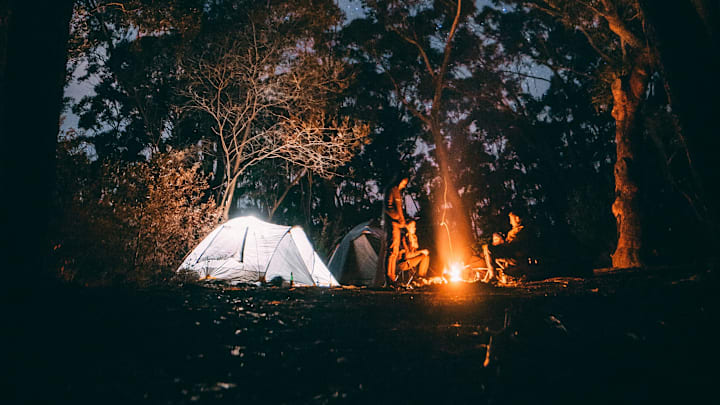Leave No Trace: Seven Principles to Keep Mother Nature at Her Best

Preserving the natural beauty around us is becoming more and more crucial as time goes on.
New and old outdoor enthusiasts alike play a vital role in how the life cycle works on the trails and in the mountains. As nature's keepers, it is important that we keep in mind what we are bringing in, what we are carrying out, and what we are leaving behind in order to maintain the beauty the world has to offer.
This summary of the Leave No Trace Principles will help to remind us of the impacts we make but may not be aware of and how we can lessen them.
Plan Ahead and Prepare
Good research is never a bad idea, especially when it comes to outdoor recreation. It is always better to be prepared because it minimizes the amount of problems that could pop up at any given moment. Planning ahead will keep you safe and well equipped for whatever comes your way.
While preparing for your next trip make sure you:
- Know the regulations and special concerns for the area
- Prepare for extreme weather, hazards, and emergencies
- Schedule your trip to avoid times of high use
- Visit in small groups when possible and if the group is too large, consider splitting into smaller ones
- Use a map and compass or GPS to eliminate the use of marking paint, rock cairns or flagging
Travel and Camp on Durable Surfaces
"Durable Surfaces" are areas that are maintained and designated for camping, hiking, and other activities and mostly consist of gravel, rock, dry grasses or snow. Good campgrounds are found, not made, so with no alterations necessary, protect riparian areas by camping at least 200 feet from lakes and streams.
While in the great outdoors, keep these pointers in mind:
In popular areas:
- Concentrate use on existing trails and campsites
- Walk single file in the middle of the trail, even when wet or muddy
Keep campsites small and focus on areas where vegetation is absent
In pristine areas:
- Disperse use to prevent the creation of campsites and trails
- Avoid places where impacts are just beginning
Dispose of Waste Properly
- Pack it in, pack it out. Inspect your campsite, food prepartation areas, and rest areas for trash or spilled foods. Pack out all trash, leftover food and litter.
- Utilize toilet faciities whenever possible. If no facilities are available, deposit solid human waste in catholes dug 6-8 inches deep, at least 200 feet from water, camp and trails. Cover and disguise the cathole when finished.
- Pack out toilet paper and hygiene products.
- To wash yourself or yourself or your dishes, carry water 200 feet away from streams or lakes and use small amounts of biodegradable soap. Dishwater should be strained and scattered.
Leave What You Find
- Preserve the past: Examine, but do not touch cultural or historic structures and artifacts.
- Leave rocks, plants and other natural objects as you find them.
- Avoid introducing or transporting non-native species: clean boot soles, kayak hulls and bike tires off between trips.
- Do not build structures, furniture or dig trenches.
Minimize Fire Impacts
Campfires play a classic role in many an outdoor adventure story, but they can also be very dangerous and destructive if certain precautions aren't taken.
- Where fires are permitted, use established fire rings, fire pans or mound fires.
- Keep fires small and only use sticks from the ground that can be broken by hand.
- Burn all wood and coals to ash and scatter cool ashes once the campfire cools completely.
- Don't bring firewood from home because it could introduce new pests and diseases. If possible, buy the wood from a local source or gather it in surrounding areas where allowed.
- Do your research on how to build a fire.
Respect Wildlife
While wildlife can be fascinating and awe inspiring to come across, they too can be dangerous and easily impacted. Wildlife deserve to be respected with distance and careful obsesrvation.
- Observe wildlife from a distance. Do not follow or approach them.
- Never feed animals because doing so damages their health, alters their natural behaviors, and exposes them to predators and other dangers.
- Protect wildlife and your food by storing rations and trash securely.
- Control pets at all times, or leave them at home.
- Avoid wildlife during sensitive times: mating, nesting, raising young or winter.
Be Considerate of Other Visitors
- Respect other visitors and allow them to have as great of an outdoor experience as you.
- Be courteous and yield to others on the trail.
- Step to the downhill side of the trail when encountering pack stock like horses and mules.
- Take breaks and camp away from trails and other visitors.
- Let the sound of nature take center stage and keep loud voices and noise to a minimum.
- Keep an eye on your pets at all times.
